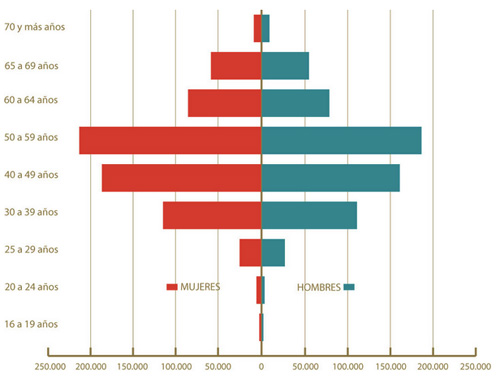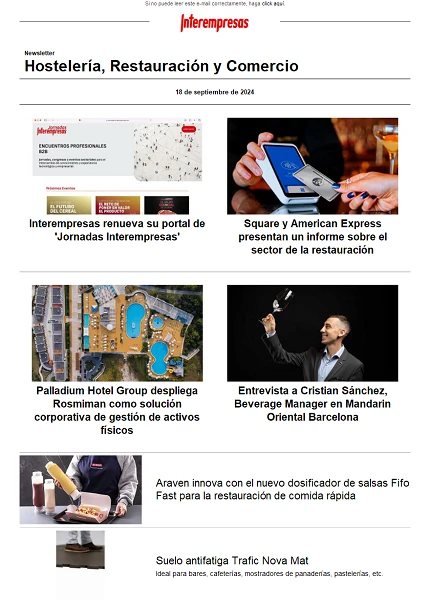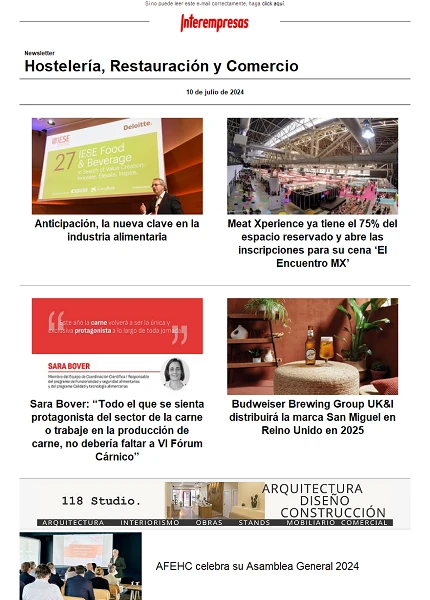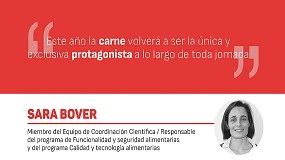Más mujeres que hombres en la hostelería
La mujer ha desempeñado siempre un papel clave en el crecimiento y desarrollo de la hostelería española. De hecho, el sector de la hostelería es el único entre los grandes sectores de nuestra economía en el que hay más mujeres que hombres. En concreto, de los 1,3 millones de trabajadores empleados en este sector, según la FEHR en base a los datos de la Encuesta de Población Activa (EPA) referidos al año 2013, el 53% son mujeres, es decir, 693.450 personas.

A pesar de este predominio en el número de mujeres trabajadoras en el sector hostelero, la diferencia entre hombres y mujeres se ha estrechado en los últimos años, debido a que el porcentaje de mujeres ocupadas en este sector ha descendido a mayor ritmo que el de hombres. En este sentido, en 2008 el porcentaje de mujeres en las actividades de hostelería era de un 56% mientras que el de los hombres suponía el 44%, con 12 puntos de distancia entre ambos. En 2013 la diferencia entre el porcentaje de mujeres y hombres se ha reducido a la mitad, pasando a un 53% las primeras y un 47% los segundos.
Más mujeres en alojamiento
Esta distribución se muestra a nivel general en el conjunto del sector hostelero, sin embargo, existen diferencias entre las diferentes ramas de actividad. El alojamiento concentra un mayor porcentaje de empleo femenino, cercano al 60%, que masculino mientras que en restauración el empleo se reparte por igual entre ambos sexos.
La mano de obra ocupada en restauración se ha equilibrado en los últimos años en cuanto se refiere al sexo, existiendo una mínima preponderancia de hombres frente al número de mujeres. De las 1.008.005 personas ocupadas en 2013 en esta rama de actividad, 508.950 son mujeres y 499.075 varones.
Desde 2008 la diferencia que existía entre mujeres y hombres ha desaparecido, al descender el porcentaje de las primeras desde el 56% que representaban en ese año y aumentar desde el 44% los segundos, situándose ambos en el 50% en el año 2013. Este cambio se debe a que la totalidad de los empleos que han desaparecido en los restaurantes y bares desde 2008 han sido de mujeres. En concreto, el empleo en restauración ha descendido en conjunto en los últimos cinco años un 10,2%, lo que supone 115.695 personas menos. La caída por parte de las mujeres ha sido de un 18,8%, con un descenso en 118.350 trabajadoras, mientras que el empleo masculino prácticamente se ha mantenido en los últimos años, con un ligero incremento de un 0,5% (2.675 trabajadores más).
En el alojamiento la evolución ha sido diferente, el descenso del empleo masculino en este subsector ha hecho que la proporción de mujeres se incremente en los últimos años. En 2013 el porcentaje de mujeres ha ascendido a un 59%, frente al 56% que representaban en 2008, mientras que el empleo masculino ha bajado de un 44% a un 41%. En conjunto, los establecimientos de alojamiento turístico emplearon en 2013 a una media de 312.079 personas, un 5,1% menos que cinco años atrás, lo que supone un descenso en 16.821 personas. La práctica totalidad del descenso corresponde al empleo masculino que cayó un 11,4%, con 16.550 trabajadores menos, en tanto que el femenino prácticamente se mantuvo igual, con un leve descenso de un 0,1% (275 trabajadoras menos).

Menos mujeres jóvenes
La mayor concentración del conjunto de trabajadores hosteleros se sitúa en la franja entre los 30 y 39 años que superan el 30% del total del empleo. Si se amplía el dato a los ocupados de 30 a 49 años el porcentaje se eleva hasta el 56,5%. Sin embargo, no hay mucha diferencia entre los porcentajes que representan cada uno de los sexos según la franja de edad.
Comparando por sexos, en 2013 las mujeres superan a los hombres en todas las edades excepto en las comprendidas entre los 16 y 19 años y los 60 y 64, en el que prácticamente se equiparan predominando ligeramente el número de varones. En este sentido se observa un cambio respecto al año 2008. En ese año el mayor porcentaje de mujeres respecto a varones se situaba entre los 16 y los 29 años, observándose además una mayor diferencia entre sexos: las mujeres superaban el 60%, que se acercaba al 70% en la franja entre 25 a 29 años, frente al 40% del empleo masculino en estas edades. En 2013 se han equiparado en ese intervalo de edad, situándose ambos entorno al 50%.
En edades más avanzadas también se ha producido un cambio en los últimos cinco años. A partir de los 65 años ha aumentado el porcentaje de mujeres ocupadas respecto al de hombres, representando entorno a un 60% las primeras en 2013, frente al 45% que representaba en 2008.
Más empleo parcial
En los últimos años desde el comienzo de la crisis el trabajo a tiempo parcial en hostelería ha aumentado. En 2008 este tipo de jornada representaba el 17,7% que en 2013 ha aumentado hasta situarse en el 26,7%. Las mujeres acaparan la mayor parte de los contratos a tiempo parcial del sector hostelero y la diferencia con los hombres persiste pese al incremento de trabajadores masculinos en este ámbito a causa de la crisis.
De los 352.800 trabajadores con contrato a tiempo parcial de media en 2013 en el sector hostelero, 225.725 son mujeres, lo que supone el 32,5% de las trabajadoras. En el caso de los hombres el porcentaje de los que trabajan a tiempo parcial representa un 20,3% (127.075 trabajadores). Estos porcentajes se han incrementado desde 2008, especialmente en el caso de las mujeres.
En ese año las mujeres que trabajaban a tiempo parcial representaban un 24%, mientras que el empleo parcial masculino no llegaba al 10%. En los últimos cinco años la diferencia según tipo de contrato entre el empleo masculino y femenino se ha reducido de los 14 puntos que les separaba en 2008, a los 12 puntos de 2013.

















